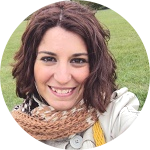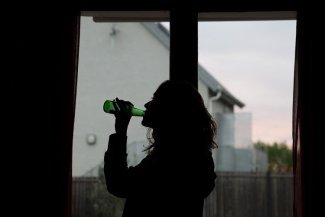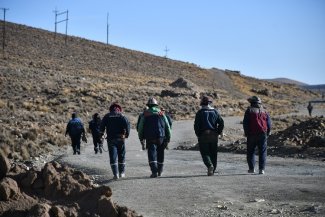Beyond the distress suffered by those affected, poor sleep has a heavy social toll. The World Health Organization (WHO) recognises 88 types of sleep disorders, but insomnia is the most common. It is defined as the inability to sleep even when one has the time and conditions required to do so.
They are often seen nodding off in the metro, after a meal, in front of a book or the TV, or while waiting at traffic lights. They fight against the gravity tugging at their eyelids, against the tiredness, the headache, the brain fog. There are more women among them than men, more older people than young, more poor people than rich.
They haven’t had the sleep they need, leaving them feeling like intruders in their own bodies the next day. “Poor sleep is the misted glass through which we have to discern life,” writes author David Jiménez in an essay on this strange phenomenon that more people suffer from than one might think – up to 45 per cent of the world’s population.
According to the US Center for Disease Control and Prevention (CDC), it is a public health epidemic that affects half of the citizens in the United States, over 20 per cent in European countries such as Poland, France, Belgium and Germany and at least 16 per cent of citizens in Africa and Asia. All of them sleep badly.
“Sleeping well involves several things: sleeping for the right length of time, between seven and nine hours, but also sleeping at the right time, not waking up too often during the night and feeling fine when we wake up,” Dr Ana Fernández, coordinator of the Sleep Research Group of the Spanish Neurology Society (SEN), tells Equal Times.
There are those who are resigned to living with this lack of sleep, those who – as David Jiménez writes – simply “cross their fingers and hope they’ll soon get a good night’s rest,” but sleep loss comes at a high personal cost.
A whole host of complex processes occur throughout our whole body while we sleep. That is why poor sleep is known to affect the metabolism, blood pressure, the immune system and the endocrine system. Poor sleep increases the risk of obesity, insulin resistance and increases the chance of a heart attack by up to 20 per cent. It is also, of course, harmful to brain health.
“We now know that during the REM phase, the deep sleep phase, memory and emotions are processed better, and during the phase prior to that, the slow wave phase, toxic substances are washed out, and potentially harmful proteins such as amyloid protein, which is the protein that accumulates in Alzheimer’s disease, are eliminated.” Beyond the distress suffered by those affected, poor sleep has a heavy social toll.
Who robs us of our sleep?
The World Health Organization (WHO) recognises 88 types of sleep disorders, but insomnia is the most common. It is defined as the inability to sleep even when one has the time and conditions required to do so.
The cause can be genetic or physiological – illness, hormonal or respiratory problems – but it often has more to do with the difficulty we have calming our whirring minds. “We need to be relaxed to sleep, and people with insomnia are in a state of heightened alertness. It is difficult for them to switch off,” says Fernández.
It is often triggered by a stressful situation: a separation, a work-related problem, a bereavement, an unexpected event – the Covid-19 pandemic, for example, exacerbated the problem, giving rise to the term Coronasomnia. There are also predisposing factors, such as being a woman – it is linked to the stress caused by working a ‘double shift’, at work and at home – being older, or having mental health problems such as depression or anxiety. These groups are up to three times more likely to suffer from insomnia.
In addition, as chronobiologist María Ángeles Bonmatí points out, there are other factors that rob us of sleep. “Light is a crucial synchroniser for setting the biological clock. It is imperative that we expose ourselves to natural light during the day, but also that we have darkness at night,” she reminds us, something that is not always possible due to the light pollution there is in many places. Another factor is noise. According to a study by the Barcelona Institute for Global Health (ISGlobal), 60 million people in Europe endure (traffic) noise levels higher than those recommended by the WHO. “There are many people who have no underlying physiological problems. All they need, perhaps, is for their local authority to take care of creating an environment that’s conducive to sleep.”
All too often, however, we rob ourselves of sleep. “The biggest problem we have is that we don’t give ourselves a chance to get the sleep we need. Our lack of time and work-life balance means there are many things that we keep giving our time to, but sleep is not one of them,” says neurologist Ana Fernández.
A case in point is bad habits such as mobile phone abuse. “It has been proven that devices delay the onset of sleep. Above all because the mobile phone activates our minds when we need just the opposite,” explains Ángeles Bonmatí. “We see it in teenagers. Many influencers publish social media posts at ungodly hours, and this has a knock-on effect on many young people.”
More recently, the impact of audiovisual platforms has also come under scrutiny. Research by the universities of Michigan and Leuven already warned in 2017 about the poorer sleep quality of “binge viewers”.
Whatever it may be, delaying bedtime ends up taking its toll and can turn temporary insomnia into the chronic insomnia that 10 per cent of the population suffers from. “When you sleep badly, you live badly,” warns clinical psychologist José Antonio Portellano. “Voluntarily changing circadian rhythms leads to an accumulation of sleep loss that in turn leads to problems such as irritability, mood swings and difficulties staying focused. It’s the first thing that goes wrong when we don’t get enough sleep, we make more mistakes.”
Sleepy workers
Sixty-nine per cent of workers, warns the US National Safety Council (NSC), are tired at work. Fatigue is most prevalent among shift or night shift workers, such as those employed in factories, aviation, transport and the health sector. The work itself alters their sleep patterns and even increases their vulnerability to diseases such as cancer.
“When you’re on mornings, you get up at 6, when you’re on afternoons, at 10, and if you’re on nights, you’re awake all night. It’s so disruptive that you send your body into a state of total confusion,” says María José García, spokesperson for the nursing union SATSE. “The worst thing is that you have to be wide awake the next day, as the patients need our full attention and capacity.”
Shift workers are the worst affected, but they are not the only ones. As José de las Morenas, occupational health coordinator for Spain’s UGT union, points out, “Sleep problems are widespread. We see it in the increased use of medication. People go to work doped up.”
The statistics confirm it: in Spain, the consumption of tranquilisers and anti-anxiety drugs has continued to grow over the last decade, from 83 daily doses per 1,000 inhabitants to 93. The reasons are often work-related: stress, precariousness, exhausting working hours, job insecurity.
Like women, the elderly and people with mental health issues, the working poor and people with multiple jobs are also likely to sleep worse, wake up worse, make more mistakes and sustain more injuries. Studies show that sleep problems account for 13 per cent of work-related injuries and increase by seven the risk of having a traffic accident.
“We need to start looking into how we approach sleep disorders as part of occupational health and safety,” says Marcial Benítez of Spain’s progressive union of labour inspectors UPIT. The problem, he explains, is that the assessment of this type of psychosocial risk “is still in its infancy”. There is no data, no protocols, “disorders such as depression or chronic insomnia are not yet recognised as occupational diseases or work-related hazards”. For the time being, what even the ILO itself is calling for is greater safeguards for shift workers. “You can’t have people working shifts at an advanced age,” argues José de las Morenas. “Exposure to such hours should be limited for workers over age 55 or for sensitive groups such as pregnant workers.”
A society on the alert
In 2013, critic Jonathan Crary compared rest in today’s society to the sleep mode of electronic devices. We rest but are always on standby, the red button is always on. The dizzying pace of life prevents us from stopping. His diagnosis is shared by sleep specialists.
“Falling asleep is not something active, it is a state of relaxation that allows us to let go, but our pace of life requires the opposite of us, that we be constantly on the alert. We are exposed to so much stimuli all day long that the only time we devote to thinking is when we go to bed,” says chronobiologist María Ángeles Bonmatí.
Today’s hyper-stimulated society creates paradoxical situations. There are those who live with sleep problems, accept them as inevitable and do not even think about seeing a specialist; then there are those who are obsessed with sleeping well, who use their smart wristbands to keep track of how many hours they sleep each day, which ends up making them even more anxious.
“People want ultra-fast solutions. That’s why they resort to psychotropic drugs, it’s the easiest solution,” explains clinical psychologist José Antonio Portellano, but sleep, he insists, “doesn’t work like that”.
As Portellano reminds us, the most useful formula, although not the most instantaneous, would be to have enough psychologists to teach them to develop better habits, such as “learning to control our schedules, avoiding noise and light, and identifying the negative thoughts that prevent sleep”. We need to stop living on credit, confident that lost or stolen sleep can be made up for later. “The brain needs to be drip-fed, it needs sleep every day. Stockpiling hours of sleep at the weekend to make up for not having slept from Monday to Friday doesn’t work. It’s like only eating properly a couple of days a week. That’s not good sleep, warns the psychologist. It’s “junk sleep”.













